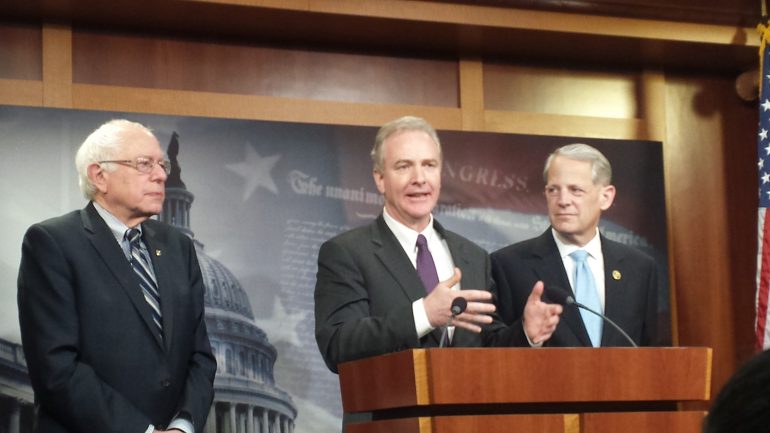WASHINGTON — Rep. Chris Van Hollen, the top Democrat on the House Budget Committee, called a deal setting the federal government’s spending framework for the next two years “a good step forward.”
On a bipartisan 266-167 vote, the House late Wednesday afternoon passed the agreement between the White House and congressional leaders.
If the Senate approves the agreement as well, Congress will have successfully avoided a looming government shutdown and debt ceiling crisis during Speaker John Boehner’s final days in office. The agreement extends the debt ceiling until 2017, just a week before the November deadline, to prevent the government from defaulting on its debt and causing a major economic crisis.
“What you’re seeing is Speaker Boehner trying to clear the decks of some of the most pressing issues before he departs,” Van Hollen told Capital News Service in an interview. “I think he wanted to avoid handing Paul Ryan a ticking time bomb.”
The roughly $4 trillion annual budget would see an $80 billion spending increase over the next two years, ending spending cuts known as sequestration that Democrats say were stifling economic growth.
“It accomplishes our goal of relieving the very tight sequester caps that were hurting the economy and preventing us from funding important priorities like education, investment and scientific research,” Van Hollen said.
To offset the spending increases, the budget will make some program cuts and sell off some of the nation’s petroleum reserves.
The White House estimates this budget will create an additional 340,000 jobs in 2016, according to a post on its website by Obama’s top economic adviser, Jason Furman.
Boehner, speaking Tuesday in what was likely his last press conference before his retirement, said he expected the agreement would face opposition from the most conservative members in his party. And, in fact, he was criticized, including by his successor in the speaker’s chair, Rep. Paul Ryan, R-Wis., who declared, “I think the process stinks.”
However, Ryan on Wednesday announced he would back the agreement.
“Any time you get a bipartisan agreement in a town that isn’t known for a lot of bipartisanship, you’re going to see bricks flying from those that don’t like the fact that there’s a bipartisan agreement,” Boehner told reporters Tuesday. “I told my colleagues, there isn’t any reason why any member should vote against this.”
An Associated Press poll released Tuesday shows that 74 percent of Republicans nationwide said it would be worth shutting down the government in order to force spending cuts, while 44 percent of Democrats agreed with the statement.
The tentative agreement sets the overall limit for defense spending, entitlements, and domestic spending for the next two years. The next step for Congress, Van Hollen said, is to make decisions on how to allocate that spending on an annual basis.
“The next step is filling in the details,” Van Hollen said. “What this does is provide stability for overall funding that is available.”

